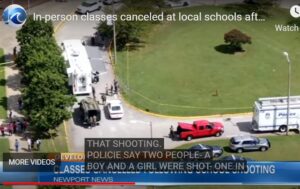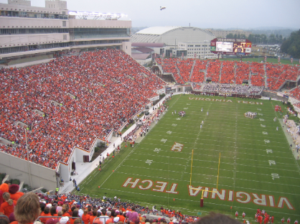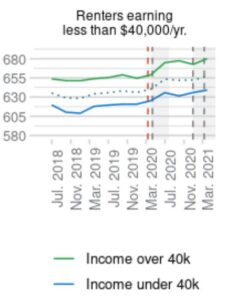 Honor is an antiquated slaveholders concept anyway. The University of Virginia’s student Honor Committee has voted to alter the honor code to eliminate the single sanction against lying, cheating and stealing from expulsion to a two-semester suspension. Before the change can be adopted, it must be approved by a vote of the student body. Third-year law student Christopher Benos proposed the plan. “This is a system that maintains the integrity of the Honor system, while offering the multi-sanction system that prioritizes rehabilitation, recommitment and Honor education.” The Cavalier Daily student newspaper describes the debate here. Prediction: If this proposal is enacted, few students actually will be “rehabilitated,” and lying, cheating and stealing will get worse. The “community of trust” is eroding as it is, even without the change. Sign of the times: Rocking chairs outside rooms on the Lawn have to be chained down.
Honor is an antiquated slaveholders concept anyway. The University of Virginia’s student Honor Committee has voted to alter the honor code to eliminate the single sanction against lying, cheating and stealing from expulsion to a two-semester suspension. Before the change can be adopted, it must be approved by a vote of the student body. Third-year law student Christopher Benos proposed the plan. “This is a system that maintains the integrity of the Honor system, while offering the multi-sanction system that prioritizes rehabilitation, recommitment and Honor education.” The Cavalier Daily student newspaper describes the debate here. Prediction: If this proposal is enacted, few students actually will be “rehabilitated,” and lying, cheating and stealing will get worse. The “community of trust” is eroding as it is, even without the change. Sign of the times: Rocking chairs outside rooms on the Lawn have to be chained down.
Refund the police. Arlington County, which competes with the City of Charlottesville for being the most “woke” locality in Virginia, is hemorrhaging police officers, and City Manager Mark Schwartz proposes setting aside $3 million in the 2023 budget for retention and recruitment. So far this calendar year, 46 officers have announced their intention to leave the force, either resigning or retiring. “Please don’t leave, we need you,” Schwartz said, according to WTOP News. Describing the situation as “critical,” Schwartz said many police officers are leaving for better-paying positions in the private sector, including Amazon’s new Northern Virginia headquarters.
The best of a bad crowd. The College of William & Mary scored 10th in the latest Foundation for Individual Rights in Education (FIRE) / RealClearEducation college free speech ranking. Among the 159 colleges surveyed, George Mason University snagged 12th place, and the University of Virginia came in 22nd. Virginia Tech dragged up the rear among Virginia institutions with a 107th-place score. The findings were based upon a survey of 37,000 undergraduate students. Students were queried about their comfort discussing controversial topics, tolerance for liberal and conservative speakers, and tolerance for conservative speakers, and administrative support for free expression. I don’t know enough to comment about W&M or GMU, but if UVa ranked 22nd freest in the survey, U.S. higher-ed has a real problem. Many students, faculty and staff do not feel free to express conservative ideas.


 by Dick Hall-Sizemore
by Dick Hall-Sizemore











